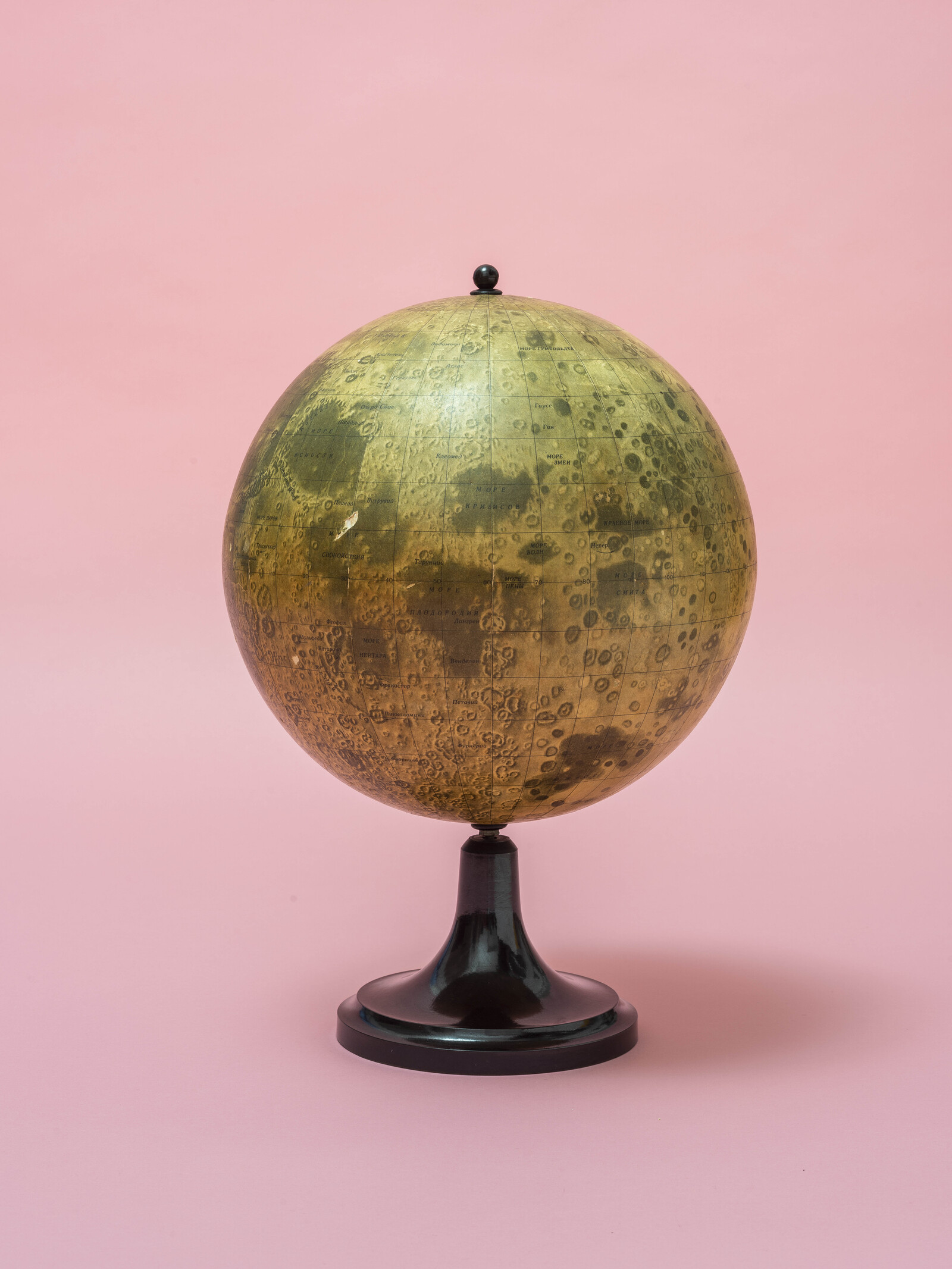Visions and re-visions of “Soviet times” from the Pecci Centre’s and other collections
November 8, 2019–May 3, 2020
Viale della Repubblica 277
59100 Prato
Italy
Hours: Wednesday–Sunday 10am–7pm
The Missing Planet opens a new series of exhibitions, conceived by the director Cristiana Perella and dedicated to developing the themes, time periods and languages of Centro Pecci’s collection, entrusting the curatorship of the exhibition to an invited expert under the guise of guest curator while supported by the head of collections and archives, Stefano Pezzato.
The curation of this first exhibition is entrusted to Marco Scotini, who integrated dozens of works from Centro Pecci’s collection with others from important collections and Italian and international institutions, to construct a “galaxy” of principal artistic research results developed in the former Soviet republics, from the 1970s to today: from Russia to the Baltic, Caucasian and central Asian provinces. The original design of the exhibition is by the artist Can Altay, who by quoting soviet exhibitions displays from the 1960s, employed a spatial vocabulary which works both materially, sculpturally, and architecturally.
Thirty years after the fall of the Berlin Wall and the subsequent dissolution of the USSR, the question of how the world has changed throughout the decades without the radical alternative that the Soviets’ Country represented for seventy years cannot be avoided. What then must have appeared as a new beginning, in fact, had little in the way of goals, since it would have meant the negation of the so-called East (of its values) in favour of a claim (hegemony) of the West that, from that moment, would have been exclusive and omnipotent. Does it make sense today, when the “stars” of capitalism are free to move through their own orbits without pressure or friction from “alien” bodies, to go back to the red planet?
The spatial organization of the exhibition appropriates the futuristic architecture of the Maurice Nio museum as one of its elements, transformed into a sort of spacecraft. The interior is inspired by the sci-fi atmosphere of Tarkovskij’s masterpiece Solaris and focuses on the temporal gap of the movie, so in his interstellar journey the protagonist Kelvin does nothing but rediscovering his past. For this reason, the exhibition itinerary is conceived backwards, starting from the current artistic scene, in its rediscovery of the Cosmist theory, then going through the post-Soviet disillusionment phase and ending with the collapse of the Soviet Union. Articulated in three sections—Space travels in another world (the museum, the cinema, the cosmos), The post-Soviet space and the impossible transition, The space of the perestroika and the end of a world—the exhibition opens with the film trilogy Immortality for All (2017) by Anton Vidokle and closes with the work Last Supper (1989) by Andrei Filippov.
With over 200 works, the exhibition presents heterogeneous materials such as archive documents, historical books on the Soviet space program, posters, gadgets and original ephemera.
The Missing Planet presents the current and last chapter of the ideal Post-Soviet trilogy which discuss a binary past: one of utopia on one side and memory on the other, starting from the works from the two previous exhibitions, Contemporary Russian Artists (1990) and Progressive Nostalgia. Contemporary Art from ex-USSR (2007).
Artists:
Vahram Aghasyan, Vyacheslav Akhunov, Said Atabekov, Babi Badalov, Ilya Budraitskis, Erik Bulatov, Alexey Buldakov, Vajiko Cachkhiani, Olga Chernysheva, Chto Delat?, Ulan Djaparov, Factory of Found Clothes, Andrei Filippov, Alexandra Galkina, Balbar Gombosuren, Andris Grinbergs, Dmitry Gutov, Alimjan Jorobaev, Ilya Kabakov, Flo Kasearu, Gulnara Kasmalieva & Muratbek Djumaliev, Yakov Kazhdan, Anastasia Khoroshilova, Olga Kisseleva, Nikolaj Kozlov, Vladimir Kupryanov, Medical Hermeneutics, Jonas Mekas, Boris Mikhailov, Deimantas Narkevičius, Nikolay Oleynikov, Boris Orlov, Anatoly Osmolovsky, Perzi, Dmitry Prigov, Radek Community, Koka Ramishvili, R.E.P. Group, Andrei Roiter, Vladislav Shapovalov, Leonid Sokov, Andrei Tarkovskij, David Ter-Oganjan, Leonid Tishkov, Jaan Toomik, Andrei Ujică, Nomeda & Gediminas Urbonas, Anton Vidokle, Sergei Volkov, Yelena & Viktor Vorobyev, Arseny Zhilyaev, Konstantin Zvezdochotov
Also on view at Centro Pecci:
Luca Vitone. Romanistan
November 8, 2019—March 15, 2020
Mario Rizzi. بيت Bayt
November 8, 2019—March 15, 2020



